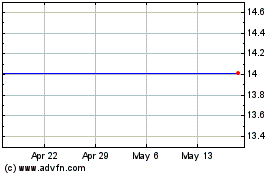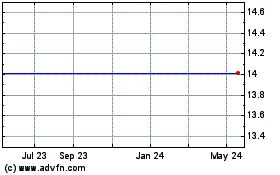Researchers Use Affymetrix Technology to Discover Why Some Breast Cancer Patients Resist Tamoxifen
December 01 2008 - 8:00AM
Business Wire
Affymetrix Inc., (Nasdaq:AFFX) announced today that scientists at
Cancer Research UK have used Affymetrix technology to discover the
molecular basis for tamoxifen response in breast cancer cells - and
the reason why some women can develop resistance to the treatment.
Their findings are published in Nature1. Tamoxifen is given to most
women for five years after they are first diagnosed with breast
cancer to help prevent the disease from coming back. Some women
develop resistance to the treatment after time, meaning their
cancer is more likely to return. Researchers at the Cancer Research
UK Cambridge Research Institute have discovered for the first time
the mechanism by which the breast cancer therapy tamoxifen
operates. It switches off a breast cancer gene ErbB2 via a protein
called Pax2. Pax2 acts as a 'switch' to keep ErbB2 switched off.
Tamoxifen resistance occurs when ErbB2 remains switched on.
Previously it was known that tamoxifen worked by blocking estrogen
from causing unchecked cell growth in breast cancer by switching
certain genes on, but the mechanism by which this occurred was
unknown. "We knew that women developed resistance to tamoxifen but
previously our understanding of why this occurred could be compared
with trying to fix a broken car without knowing how the engine
worked,� said Dr Jason Carroll, lead author on the study. �Now we
understand how all the engine parts operate and we can start to
think about ways to make repairs.� "Using the GeneChip� Human
Tiling 2.0R Array Set, we have discovered that for tamoxifen to
work it has to block the gene ErbB2. It does this by using a
control switch that is hidden in the background of the genome,
within the ErbB2 gene itself. In order for tamoxifen to be
effective, this switch must be held in the off position by Pax2.
Now we understand how women can develop tamoxifen resistance." The
production of estrogen can cause breast cancer cells to grow and
divide and tamoxifen prevents estrogen from causing breast cancer
cells to grow, helping to lower the risk of the disease returning.
Most women have breast cancers that are stimulated to grow by
estrogen, but not all. Breast cancer is the most common cancer
among American women. More than 250,000 new cases will be diagnosed
this year, and more than 40,000 women will die from the disease in
2008, according to the American Cancer Society. There are currently
about 2.5 million survivors in the country2. "Cancer Research UK's
early clinical trials of tamoxifen helped transform the way that
women were treated for early breast cancer, saving tens of
thousands of lives, and this work is yet another step forward,�
said professor Sir David Lane, Cancer Research UK's chief
scientist. "More women are surviving breast cancer than ever before
thanks to improvements in diagnosis and treatment as well as
fundamental science discoveries like this." "Tamoxifen has been a
huge success story helping to prevent breast cancer recurring for
many women,� added Lane. �Understanding why it occasionally stops
working is really important because it allows us to identify new
targets for drug development and who will need such treatments."
�GeneChip� Tiling Arrays have enabled high-resolution, genome-wide
mapping of estrogen receptor (ER) binding sites,� said Kevin King,
president of Affymetrix. �This study demonstrates the power of
using this approach to resolve a single important ER binding site
that plays a key role in determining the mechanisms underlying
tamoxifen resistance in breast cancer. It has the potential to
significantly improve prescription decisions related to this
leading drug treatment.� 1Hurtado A., et al. ERBB2 regulation by
Estrogen Receptor-Pax2 determines tamoxifen response, Nature.
November 12 2008. 2From the American Cancer Society webpage: What
Are the Key Statistics for Breast Cancer?
http://www.cancer.org/docroot/CRI/content/CRI_2_4_1X_What_are_the_key_statistics_for_breast_cancer_5.asp?sitearea=
About Affymetrix Affymetrix GeneChip� microarray technology is the
industry-standard tool for analyzing complex genetic information.
After inventing microarray technology in the late 1980s, Affymetrix
scientists have been dedicated to developing innovative products
that provide researchers with a more complete view of the genome.
These products continue to accelerate genetic research and enable
scientists to develop diagnostics and tailor treatments for
individual patients by identifying and measuring the genetic
information associated with complex diseases. Today, Affymetrix
technology is used by the world�s top pharmaceutical, diagnostic
and biotechnology companies, as well as leading academic,
government and not-for-profit research institutes. More than 1,800
systems have been shipped around the world and more than 14,000
peer-reviewed papers have been published using the technology.
Affymetrix is headquartered in Santa Clara, Calif., and has
manufacturing facilities in Sacramento, Calif., Cleveland, Ohio,
and Singapore. The company has about 1,100 employees worldwide and
maintains sales and distribution operations across Europe and Asia.
For more information about Affymetrix, please visit the company�s
website at www.affymetrix.com. About Cancer Research UK Together
with its partners and supporters, Cancer Research UK's vision is to
beat cancer. Cancer Research UK carries out world-class research to
improve understanding of the disease and find out how to prevent,
diagnose and treat different kinds of cancer. Cancer Research UK
ensures that its findings are used to improve the lives of all
cancer patients. Cancer Research UK helps people to understand
cancer, the progress that is being made and the choices each person
can make. Cancer Research UK works in partnership with others to
achieve the greatest impact in the global fight against cancer. For
further information about Cancer Research UK's work or to find out
how to support the charity, please call 011 44 20 7009 8820 or
visit www.cancerresearchuk.org. Forward-looking Statements All
statements in this press release that are not historical are
�forward-looking statements� within the meaning of Section 21E of
the Securities Exchange Act as amended, including statements
regarding Affymetrix� �expectations,� �beliefs,� �hopes,�
�intentions,� �strategies� or the like. Such statements are subject
to risks and uncertainties that could cause actual results to
differ materially for Affymetrix from those projected, including,
but not limited to: risks and uncertainties relating to commercial
success of the agreement with Cancer Research UK discussed in this
press release; risks of the company�s ability to achieve and
sustain higher levels of revenue, higher gross margins and reduced
operating expenses; uncertainties related to technological
approaches, manufacturing and product development; personnel
retention; uncertainties related to cost and pricing of Affymetrix
products; dependence on collaborative partners; uncertainties
related to sole-source suppliers; risks associated with past and
future acquisitions; uncertainties relating to FDA and other
regulatory approvals; competition; risks relating to intellectual
property of others and the uncertainties of patent protection and
litigation. These and other risk factors are discussed in
Affymetrix� Form 10-K for the year ended December 31, 2007, and
other SEC reports, including its Quarterly Reports on Form 10-Q for
subsequent quarterly periods. Affymetrix expressly disclaims any
obligation or undertaking to release publicly any updates or
revisions to any forward-looking statements contained herein to
reflect any change in Affymetrix� expectations with regard thereto
or any change in events, conditions or circumstances on which any
such statements are based. NOTE: Affymetrix, the Affymetrix logo
and GeneChip� are registered trademarks owned or used by Affymetrix
Inc.
Affymetrix (NASDAQ:AFFX)
Historical Stock Chart
From Jun 2024 to Jul 2024

Affymetrix (NASDAQ:AFFX)
Historical Stock Chart
From Jul 2023 to Jul 2024
